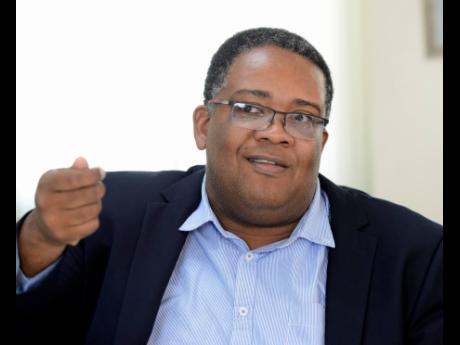Earth Today | ‘Towards the future we want’
Urgent, ambitious climate actions a must for Caribbean resilience – Scientist
CLIMATE SCIENTIST Professor Michael Taylor recently reminded Jamaicans and global stakeholders that it is possible to realise a stable climate future – but only with significant ambition and a hard-nosed commitment to seeing it through to fruition.
Speaking at the recent national engagement to discuss the upcoming climate talks in Glasgow – organised by the Climate Change Division and the United Nations Development Programme – the professor referenced the United Kingdom’s 2021 project to ‘explore what the future could look like in a climate-resilient, net-zero world’.
Ultimately, Taylor said, what was concluded, certainly for Jamaica, which represented the Caribbean as one of six regions looked at, was a world of good possibilities.
These possibilities include a Jamaica in 2050 that generates “almost all of its own power from wind, solar, and even waste sugarcane,” and local power systems that “give freedom and flexibility to rural communities”. This is while enjoying restored forests and a naturally fortified coastline that reduces the impact of storms “and benefiting both the economy and citizens”.
Also among the possibilities – and which were reflected in the desires articulated by the participants – were green transport, including electric cars, cool comfortable and storm-proofed cities, as well as storm-resilient and low-carbon construction materials, like bamboo.
However, to achieve those outcomes, it is necessary to realise net-zero emissions, that is, the point at which the amount of greenhouse gases going into the atmosphere are balanced by the amount that is removed – with the goal being to restrain the warming of the planet.
To that end, Taylor, a physicist and dean of the Faculty of Science and Technology at The University of the West Indies, Mona, said there were a number of essential items that need to be settled at the upcoming international climate negotiations to be held in Glasgow. The talks begin at the end of this month and continue into November.
Those items include collective ambition and rules of play to achieve net zero by 2050, “because zero way before 2050 has to be a non-negotiable goal, if we are even to get to 1.5 degrees Celsius”.
The 1.5 target, also captured in the Paris Agreement, has long been held by the Caribbean as the necessary cap for the rise in global temperatures above pre-industrial levels, since anything above that sees the region facing especially dire impacts from climate change.
“Aiming for 1.5 degrees Celsius gives us half a chance of a livable future. We must not relinquish the goal,” insisted Taylor, who was a lead author for the Intergovernmental Panel on Climate Change’s special report on 1.5 degrees of global warming.
In addition to holding fast to the 1.5 ambition, he also called for the inclusion of mitigation, adaptation, and loss and damage.
“Adaptation and loss and damage because 1.5 is not a safe climate; it is a compromised climate for the Caribbean,” the scientist explained.
He added that also essential is access to finance, since “zero has to be accompanied by resources to enable the vision we see for the Caribbean”.
“So when net zero comes and we only hit 1.5, we still need to hit it and look good according to what we want,” Taylor added.

